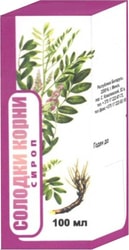
Dill seeds have been prized for centuries not only for their distinctive flavor, but also for their remarkable therapeutic properties. Traditionally used in folk medicine, these tiny seeds offer a wide array of health benefits, supporting digestive, urinary, and cardiovascular well-being.
Dill seeds are renowned for their carminative properties, effectively reducing gas and bloating. Dill water, a simple infusion of dill seeds, is a popular remedy for infant colic. Their mild laxative effect promotes regular bowel movements, making them beneficial for those experiencing constipation or sluggish digestion. Furthermore, dill seeds help soothe digestive spasms and improve gut microbiota balance.
Dill seeds possess diuretic properties, promoting increased urination and assisting in the elimination of toxins from the body. This diuretic effect can be particularly helpful in managing urinary tract infections (UTIs), and the seeds' antibacterial properties help combat infections.
Dill seeds contribute to overall cardiovascular health. Studies suggest they may help lower blood pressure and improve circulation, making them a potentially beneficial addition to the regimen of individuals with hypertension.
The expectorant properties of dill seeds aid in loosening and expelling mucus from the respiratory tract, providing relief from coughs, bronchitis, and other respiratory conditions.
The recommended dosage and preparation methods vary depending on the specific health concern:
For most applications, start by crushing or grinding the seeds to release their beneficial compounds.
Infusion (General Use): 1 tablespoon of crushed seeds to 1 cup of boiling water. Steep for 20-30 minutes, strain, and consume as directed (see below).
Note: While generally safe, consult your healthcare provider before using dill seeds, especially if you have pre-existing medical conditions or are taking other medications. This information is for educational purposes and should not be considered medical advice.





